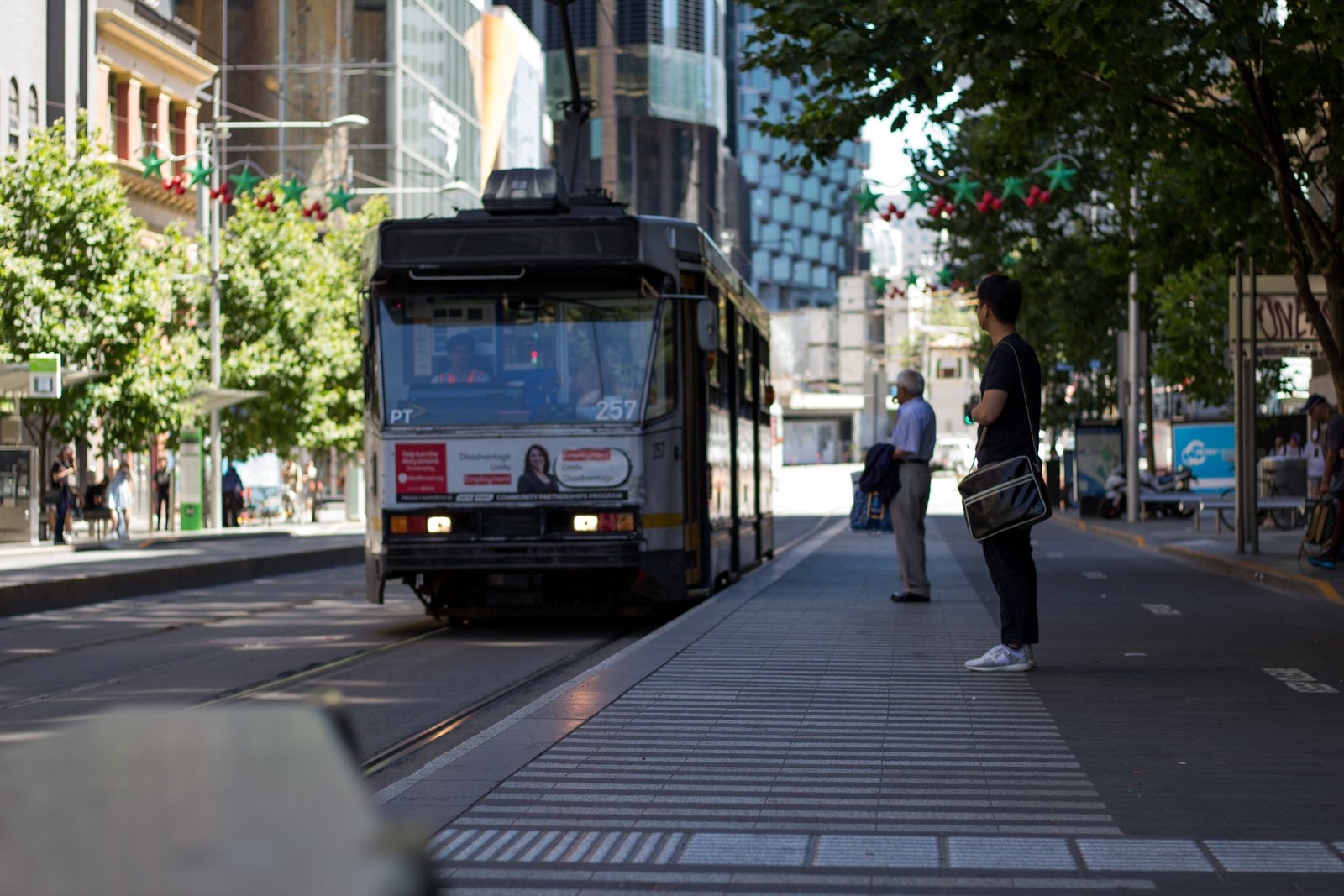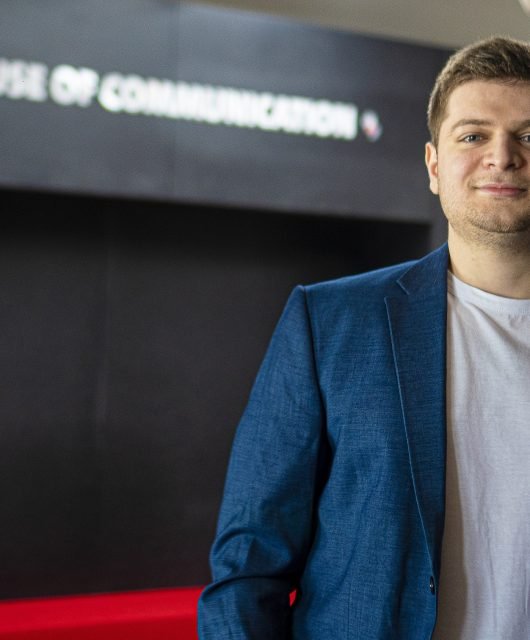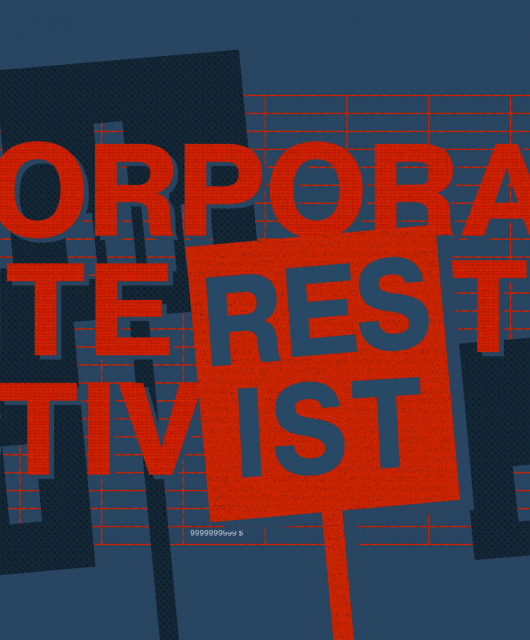Week: June 22nd -26th
by Interbrand
Several weeks ago, when the gravity of the situation became clear, Interbrand started regular reporting on how brands were dealing with the COVID-19 crisis. What’s now becoming clear is that the current climate is one of near perpetual disruption. So the brand consulting firm made the decision to keep on telling the stories of inspiring brand leadership and strategy amid the latest crises in an anxious world. Interbrand’s goal remains the same: to provide an up-to-the-minute source of information, inspiration and insight on brand moves as they happen.

Corporate & Marketing
For some direct-to-consumer brands, lower cost per thousand impressions combined with hawking in demand products made the pandemic a good moment to spend more on advertising, with some marketers doubling their planned ad spend for the second quarter. “There were a lot of brands having ‘holiday shopping’ type numbers as a result of pandemic,” said Chris Toy, CEO and founder of MarketerHire, a freelance platform for marketers. “So Christmas came early, basically.”
For DTC brands in categories like home goods, wellness, athleisure and beauty as well as office and outdoor furniture, increasing the ad budget generally led to higher conversion rates at cheaper than normal ad rates which allowed them to make “their second quarter bigger than any of their [previous] fourth quarters,” said Kevin Simonson, VP of social at Wpromote, adding that the DTC brands that could increase their ad spend during the second quarter probably spent between 50% to 100% more than planned. For example, Toy said that “one brand increased their ad budget from low five figures in January to over $1 million in June. They’re seeing profitable growth including their ad spend, so they’ll spend as much as they can.”
Retail & Fashion
Japanese shoppers queued at Uniqlo stores and crashed its website on Friday as the clothing chain began selling face masks with breathable fabric used in the brand’s popular underwear, preparing for the coronavirus outbreak lasting through summer. Scenes of people standing in the rain waiting for stores to open were seen throughout Japan and broadcast on Twitter, while the online store displayed an apology to those looking for the washable Airism masks, saying the website was inundated.
Airism has been one of Uniqlo’s most popular lines, known for allowing wearers to stay cool in the heat and during exercise. The masks are sold in three piece packs for ¥990 ($9.26) plus tax, and are available in three sizes. Prospects of a prolonged crisis has encouraged Japanese consumers to buy and make reusable washable versions even as disposable masks, initially in short supply, have become more easily available.
Amazon customers stuck at home during the Covid-19 pandemic have been buying more pet food, kitchen tools, haircare products and athleisure wear. That’s according to a new study from web analytics firm SimilarWeb, which looked at the buying habits of consumers on the ecommerce platform from January to April 2020, and compared it to the same period last year.
Purchases of pet supplies on Amazon were up 66% year over year. Pet food sales were up 98%, which SimilarWeb said reflects both Amazon’s goal of driving subscriptions of products with a recurring need to cement customer loyalty, as well as its intent to challenge the ecommerce leader, Chewy, for a bigger chunk of the $21 billion pet food market. Pet food brands Blue Buffalo, Purina and Nestlé owned 70% of category pageviews on Amazon in the January to April 2020 period.
Amazon shoppers are also making more purchases for their homes. While the conversion rate increase is modest from January to April 2020 (3.65%), SimilarWeb said that translates to 14.4 million more transactions. Kitchen and dining in particular saw a 4.2% increase in conversions in early 2020, an increase of 7.8 million year over year.
The top brands on Amazon include Cuisinart, Oxo and Hamilton Beach. Amazon has also become a more popular site for beauty and personal care products during the pandemic, with purchases up 62% year over year; between March and April 2020, the hair care category on Amazon saw visits increase 82%. Electronics brands Asus and Logitech saw a huge jump in March and April as demand for work-from-home equipment increased and there was an increase in customer interest in gaming products.
Emma Watson, the actress and activist who made her name as Hermione Granger in the Harry Potter films, has joined the board of the French fashion giant Kering, in a major coup for the world’s second-biggest luxury group. The British star, who was born in Paris, is the face of the Good On You app, which rates fashion brands on their ethical and sustainability credentials.
Watson is also known for her work with Eco Age’s Green Carpet Challenge. She wears sustainable red carpet looks, frequently custom made by top-tier designers, for most public appearances. Although Kering is seen to have the environmental edge on its rival LVMH, its top labels Gucci, Saint Laurent and Balenciaga are only rated “Not good enough” or “It’s a start” by Good On You. She was nominated on to the board by shareholders at Kering’s AGM alongside the Ivory Coast-born former CEO of Credit Suisse Group Tidjane Thiam, as well as Jean Liu, the president of “the Chinese Uber” Didi Chuxing.
Media & Entertainment
This year’s Reuters Institute Digital News Report comes in the midst of a global health pandemic whose economic, political, and social consequences are still unfolding. It noted increased consumption of traditional sources of news, especially television, but also online news sources. One problem for publishers, however, is that this extra interest is producing even less income – as advertisers brace for an inevitable recession and print revenue dips.
Against this background it is likely the industry will see a further drive towards digital subscription and other reader payment models. The study has seen significant increases in payment for online news in a number of countries. Across all countries, though, most people are still not paying for online news, even if some publishers have since reported a ‘coronavirus bump’. Access to news continues to become more distributed. Across all countries, just over a quarter (28%) prefer to start their news journeys with a website or app.
Those aged 18–24 (so-called Generation Z) have an even weaker connection with websites and apps and are more than twice as likely to prefer to access news via social media. Across age groups, use of Instagram for news has doubled since 2018 and looks likely to overtake Twitter over the next year.
To counter the move to various platforms, publishers have been looking to build direct connections with consumers via email and mobile alerts. In the United States one in five (21%) access a news email weekly, and for almost half of these it is their primary way of accessing news. Voice-activated smart speakers like the Amazon Echo and Google Home continue to grow rapidly.
Usage for any purpose has risen from 14% to 19% in the UK, from 7% to 12% in Germany, and 9% to 13% in South Korea. In April the survey found that across six surveyed countries almost a quarter (24%) used WhatsApp to find, discuss, or share news about COVID-19 – up seven points on average on the January survey which asked about usage for any news. Around a fifth (18%) joined a support or discussion group with people they didn’t know on either Facebook or WhatsApp specifically to talk about COVID-19 and half (51%) took part in groups with colleagues, friends, or family.
One in ten accessed closed video chats using platforms like Zoom, Houseparty and Google Hangouts – many for the first time. Meanwhile Instagram and Snapchat have become popular with younger groups for accessing news about COVID-19. Almost half of 18–24 respondents in Argentina (49%) used Instagram, 38% in Germany. One in ten (11%) accessed COVID-19 news via TikTok in the US and 9% in Argentina.
Pokémon Go maker Niantic has seen significant usage changes as a result of the COVID-19 crisis. “You could see walking distances go down,” Pokémon Go senior product manager Matt Slemon said this week. He said changes varied widely depending on the severity of a country’s lockdowns, and even between cities like New York and San Francisco.
Niantic responded by adding shelter-in-place-friendly features like remote raids, and announced details yesterday for the first virtual Pokémon Go Fest in late July. The event will have challenges, games, and “free downloadable and printable paper crafts and decorations” so you can turn your home into conference HQ. Niantic CEO John Hanke recently told reporters that the company has 10 new titles on its roadmap, with plans to roll out two per year over the next 5 years. He hinted at plans to support fitness, shopping and more with future Niantic titles. “We’re eager to do work in that area, where the lines blur,” he said.
The lockdown has spurred many to seek out new hobbies in recent weeks, and sales for UK-based lifestyle and motoring manuals publisher Haynes have soared as DIYers and hobbyists look to learn new skills or complete essential repairs on cars and motorcycles while garages have been closed. But it’s information on chicken keeping that has proved most popular at Haynes, with sales of its Chicken Manual up by 1,600%.
It is currently the company’s best-seller on haynes.com, ahead of car and motorcycle workshop manuals. Second to chickens in the lockdown chart is Haynes’ Bike Book cycling manual, whose sales have been boosted since the Government’s announcement that cycling and cycle repairs are to be encouraged. Also riding high was the Haynes Bike Repair Guide app, which hit the #1 spot in the App Store’s Sports category.
Fitness & Sports
Fitness companies have found creative ways to engage their members remotely by expanding online services, livestreaming workouts on social media and offering additional lifestyle content, such as healthy recipes and family workouts, but many leaders in the industry predict that once stay-at-home orders are lifted, members will be ready to head back to the gym.
Sharad Mohan, CEO and co-founder of the personal training software Trainerize, said the social element of the gym is what members miss the most, suggesting fitness brands “run in-gym challenges that spark healthy competition and camaraderie, run limited-edition, in-person classes or offer up free trials for in-person training.”
Chad Waetzig, evp of marketing and branding at Crunch Fitness, said 83% of its members were anxious to get back to the gym. “There is a certain social component, the benefit of getting proper coaching, and it is incredibly motivating for some people.” Waetzig shared that roughly half of Crunch members were dissatisfied with their at-home fitness program. Mohan also predicted that the industry will see “a long period of transition and apprehension” before members are ready to head back to the gym.
In order to combat that reluctance, he suggested fitness companies focus on a hybrid of in-person and remote services while focusing on community-based initiatives. Orangetheory Fitness has done just that, expanding at-home workouts for both members and nonmembers during quarantine. Chief brand officer Kevin Keith said that “the pandemic greatly accelerated the brand’s plans to evolve as a hybrid in-studio and digital fitness model,” adding that its in-home workouts aren’t meant to replace the in-studio experience.
A new digital “health passport” created by the company behind the UK soccer Premier League’s Covid-19 testing could open a pathway for supporters to return to stadiums. Top flight football is resuming for the first time in two-and-a-half months after it was suspended due to the coronavirus outbreak.
Players and staff at Manchester City, Arsenal, Aston Villa and Sheffield United will use the system, which creates a unique code on a player’s smartphone linked to test results which is scanned on entry, to enter stadiums when they play on Wednesday evening and it will be used throughout the next six weeks while the 2019-20 season is concluded. Hong Kong-based biotechnology company Prenetics, who agreed a £4million deal with the Premier League to provide their testing system, has spent months developing the health passport for use across sport and other industries.
Prenetics’ chief executive Avi Lasarow has said that it could also be linked to government testing and antibody data so that fans could have their own individual health passport to ensure they were not carrying the virus and could therefore potentially attend games. “This is the first time it’s being used in sports,” Lasarow said. “It has the possibilities for scaling it up in a sport context to stadiums and fans in a much bigger capacity. I think that’s where the future is in terms of Covid-19. Today it’s being used for access control, it can link to accreditation and biometrics. Ultimately the capability is there for us to facilitate the safe return of fans to stadiums.”
Finance
The pandemic is heralding a “permanent” shift in consumer spending, with increases in debit card and domestic transactions here to stay, according to Visa’s European chief executive. Charlotte Hogg, who has led the payments group’s European arm since 2017, said that lockdowns around the world had caused a boom in online shopping and precipitous declines in cash usage: “Behaviours have fundamentally changed.”
Speaking as global economies begin to emerge from these lockdowns, she added: “It’s hard to say exactly what the [economic recovery] is going to look like, but we think it’s going to be digital, domestic spending is going to be important, and debit cards [rather than credit] are going to be important.”
A report by Accenture published on Wednesday predicted that cash usage would fall by an average of 30 per cent across Europe this year. Campaigners have raised concerns that rapid changes in cash usage risk excluding older and more vulnerable customers. However, Ms Hogg argued that digital payments could help vulnerable customers who need to continue shielding themselves from the virus for an extended period. She also noted that small businesses in particular would need to do more to plan for the new normal. She said Visa was working with banks and other partners to help SMEs adjust. “Many of their business models aren’t geared for a digital world — that’s not what they’ve had to do in the past, but now consumers are really calling for that.”
Chinese tech company Tencent is building Net City, a car-free neighborhood in Shenzhen, that is around the size of Midtown Manhattan. The plans for the two-million-square-meter neighborhood include parks, homes, entertainment venues and offices but zero roads for cars; instead, pedestrians must travel by foot, bicycle, or ferry.
Net City is intended to have a “human-focused” design, as more space will be available for activities and amenities (rather than cars), and will rely on solar panels for energy. The parent company behind WeChat plans to complete Net City over the next seven years. Google and Facebook have been using land they own for affordable housing projects, while Amazon built a homeless shelter.
But Tencent is one-upping them all by trying their hand at urban planning. Net City taps into a rising consumer expectation: that progressive brands step up and become agents of local transformation – particularly in areas governments are trying (and perhaps struggling) to address. In Shenzhen, the future home of Net City, local authorities have worked to rid the city of pollution.
Tencent’s initiative demonstrates a long-term commitment towards this mission, as it makes its neighborhood car-free and prioritizes residents’ wellbeing needs. Thanks to the pandemic, 90% of consumers hope to see brands partner with governments, while 86% want companies to act as a safety net to fill in gaps in governments’ responses to the virus – and this consumer outlook is likely to extend far beyond COVID-19.
Travel & Hospitality
Airlines including Easyjet and KLM in Europe, Delta Air Lines and American Airlines in the United States, and Asia’s Virgin Australia are suspending all or part of their alcoholic drinks service in response to Covid-19. It’s part of a widespread revision of the industry’s food and drink service to minimize interaction between crew and passengers and to ensure a safer journey for all.
With face masks already mandatory on pretty much all flights around the world, and new legislation introduced in January 2020 to curb anti-social behavior on flights, it’s another in a line of barriers – literal and legal – to getting high in the sky. Many airlines are limiting drink options to water only. As face masks must be kept on other than when passengers are eating and drinking, it’s a way of ensuring passengers are lingering over their refreshments for no longer than necessary.
UK-based hotel guidebook publisher The AA has launched a COVID Confident assessment scheme to “support the hospitality industry in re-establishing and rebuilding consumer confidence as parts of the UK come out of lockdown”.
It’s a free scheme, open to all hospitality establishments that pass the AA’s criteria, though all applicants are encouraged to make a donation to charity Hospitality Action. The accreditation, which will appear on the AA’s Rated Trips website, will indicate to customers that an establishment has in place the necessary risk assessment, safety measures and staff training to reopen safely, in line with the UK’s respective government guidelines as well as UKHospitality and respective trade association guidelines.
To read the full report, please download here.
To access daily Brand Moves, please visit www.brandchannel.com.





